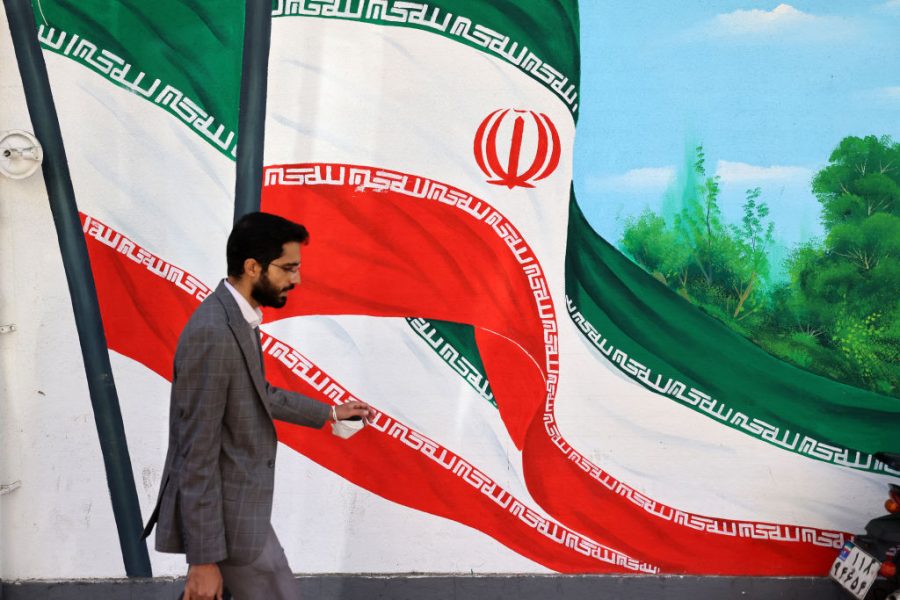So, the long-awaited Israeli strike on Iran is finally over, and if we trust the Israeli post-attack analysis, then it went well. Buckling under American pressure not to attack Iranian nuclear or oil facilities, which could have led to massive escalation and a spike in oil prices (both undesired outcomes on the eve of US elections), Israel focused instead on military targets.
Its 100-aircraft armada knocked out all of Iran’s S-300 air defence system, reduced Iranian ballistic missile production by 80 per cent, and struck air defence systems in the vicinity of Abadan, an oil production centre. This air attack caused not only physical damage but also sent a clear message to Iran that, next time, with Iranian air defence shattered, Israel could get even closer to sensitive sites.
The war between Israel and Iran, for many years in the shadows, is now all in the open
Iran, no doubt, finds itself in an undesired situation. Over the years, it has built and armed an arc of proxies around Israel, from Hezbollah in Lebanon to Hamas in the Gaza Strip, the Houthis in Yemen, and Shia groups in Iraq and Syria. Iran’s thinking was that its proxies could not only exhaust Israel but also make it unnecessary for it to intervene directly in clashes with Israel, lest it expose itself to Israeli retaliations.
But things have taken a different turn, and, ironically, Iran finds itself having to protect those who were meant to protect her. Thus, when Israel inflicted terrible blows on its proxies, mainly on Hamas and Hezbollah, and humiliated Iran by, for instance killing a Palestinian guest, Ismail Haniyeh – the Hamas politician, in Tehran, Iran felt obliged to attack Israel. Not to respond to the Israeli challenges could have portrayed them, not least in the eyes of its opposition at home, as a paper tiger.
What worsens matters for Iran is that, at a time when it wishes to improve its relations with the West, it finds itself in a direct clash with the US. Indeed, in the days leading up to the Israeli attack on Iran, the United States not only planned with Israel which Iranian targets to attack (and which not to attack), but Washington also agreed to put American boots on Israeli soil to help in case of Iranian retaliation.
And now, all eyes are shifting from Israel to Iran to see its next move. Will it respond to the latest Israeli attack? And if it does, what sort of reaction will it be? Will it attack Israel proper, or perhaps strike at the more exposed Jewish targets abroad? These are all big open questions.
In the meantime, in Israel, three schools of thought compete: The first believes that if Iran retaliates, Israel should react as it has done in the past, but not overdo it. The overall aim, according to this school of thought, should be ‘lisgor et Ha’sipur’, meaning to close this story and focus, instead, on the other fronts, mainly Lebanon and Gaza, where Israeli hostages have been kept for more than a year now.
The second school of thought holds that if Iran retaliates, Israel should take advantage of a unique opportunity to remove a strategic threat – a nuclear Iran – by bombing its nuclear facilities. Such an attack will require convincing Washington to not only help in defence, but also participate in the operation itself, as Israel, striking on its own, can only cause damage to Iran’s nuclear facilities but not destroy it.
The third school of thought focuses not so much on the military aspects of a possible Israeli retaliation against Iran but on political matters. It calls for measures to get rid of the Iranian regime, once and for all, and bring its collapse. This could be achieved by a direct attack on the Iranian regime – its assets and leaders – which, as the Israeli thinking goes, would bolster Iranian opposition to the regime and bring its collapse from within.
For now, it seems Israel’s prevailing school of thought is the first. The relatively muted Israeli jubilations following their successful attack seem to indicate that they would prefer to keep a low profile, which might convince Iran not to hit back.
Two matters might push the Israelis to adopt more the radical options of attacking nuclear facilities or striking at the regime itself. The first would be the strength and magnitude of the Iranian retaliation if it comes. The second would be the view of the newly elected American administration.
What is certain, though, is that a war between Israel and Iran, for many years in the shadows, is now all in the open. It is going to be a very long war.







Comments